Archives: Documents
-
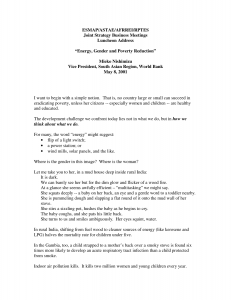
Energy, Gender and Poverty Reduction
Mieko begins with the following notion – that no country large or small can succeed in eradicating poverty, unless her citizens (especially women and children) are healthy and educated. The development challenge we confront today lies not in what we do, but in how we think about what we do. For many, the word energy…
-
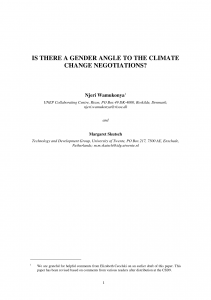
Is There a Gender Angle to the Climate Change Negotiations?
This paper attempts to establish whether gender issues need to be addressed in the climate change debate. Towards this goal, a number of different issues within the climate change debate, in particular the instruments proposed are analysed. While there are many gender angles related to the climate change convention and the instruments therein, some are…
-
Gender Perspectives on Energy for CSD-9
This paper sets out the reasons, both from a Southern and from a Northern perspective, why gender issues need to be more strongly integrated into energy policies, planning and projects, to increase sustainable energy access for women. It refers to relevant recommendations made at UN meetings and other expert gatherings and lists a number of…
-
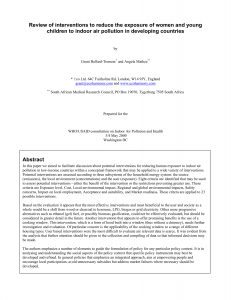
Review of Interventions to Reduce the Exposure of Women and Young Children to Indoor Air Pollution in Developing Countries
The aim of this paper is to facilitate discussion about potential interventions for reducing human exposure to indoor air pollution in low-income countries (LIC) within a conceptual framework that may be applied to a wide variety of interventions. This main goal may be divided into the following sub goals: To establish a conceptual framework for…
-
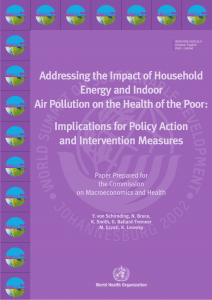
Addressing the Impact of Household Energy and Indoor Air Pollution on the Health of the Poor: Implications for policy action and intervention measures
Use of biomass fuels and coal burning indoors leads to levels of indoor air pollution many times higher than international ambient air quality standards allow for, exposing poor women and children on a daily basis to a major public health hazard. This exposure increases the risk of important diseases, and is estimated to account for…
-
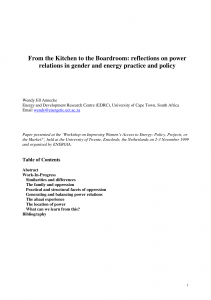
From the Kitchen to the Boardroom: reflections on power relations in gender and energy practice and policy
The author argues that, in order to succeed in identifying energy needs, it is not sufficient to accurately describe women’s roles but that the emphasis should be on the broader context of the social and power relationships involved in day-to-day activities. She compares and contrasts the domestic responsibilities of two women, one from a middle-class…
-
Gender and energy planning
This paper highlights a number of different positions that can be taken regarding the reason for and purpose of a gender approach in energy planning. The two extreme positions ‘gender for efficiency’ and ‘gender for equity’ are described. Most energy planners are found somewhere in between these extremes. Next the question of how the gender…


